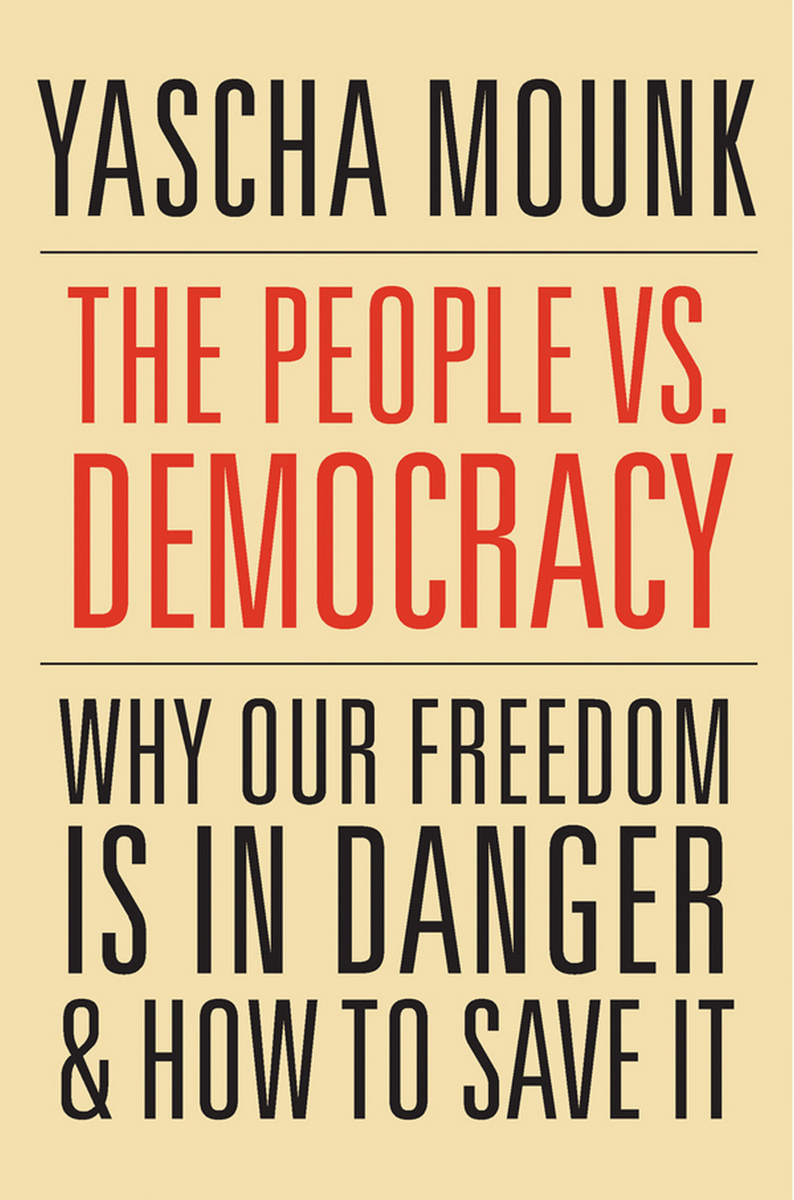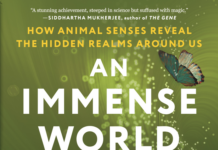But once a country was both affluent and democratic, it proved incredibly stable. Argentina had experienced a military coup in 1975, when its gross domestic product per capita was about $14,000 in today’s currency.4 Above that threshold, no established democracy had ever collapsed.
==========
And so democracy without rights always runs the danger of degenerating into the thing the Founding Fathers most feared: the tyranny of the majority. Meanwhile, rights without democracy need not prove to be more stable: once the political system turns into a playground for billionaires and technocrats, the temptation to exclude the people from more and more important decisions will keep on growing. This slow divergence of liberalism and democracy may be exactly what is now happening—and the consequences are likely to be just as bad as one would predict.
==========
The politics of the Eurozone are an extreme example of a political system in which the people feel as though they have less and less say over what actually happens. But they are far from atypical. Unnoticed by most political scientists, a form of undemocratic liberalism has taken root in North America and Western Europe. In this form of government, procedural niceties are carefully followed (most of the time) and individual rights are respected (much of the time). But voters have long since concluded that they have little influence on public policy. They aren’t altogether wrong.
==========
Hungary is no longer a liberal democracy. What, then, is it? Over the years, Orbán has answered this question with increasing clarity. At first he presented himself as an honest democrat with conservative values. Now, he states his opposition to liberal democracy loud and clear. Democracy, he vows, should be hierarchical rather than liberal. Under his leadership, Hungary will become an “illiberal new state based on national foundations.” This is a much better description of the nature of his enterprise than most outside observers have been able to muster. They tend to denounce Orbán as undemocratic. But though they are right to worry that his illiberal reforms may eventually allow him to disregard the will of the people, it is a mistake to think that all democracies must by their nature be liberal, or resemble our current political institutions. Hierarchical democracy allows popularly elected leaders to enact the will of the people as they interpret it, without having to make allowances for the rights or interests of obstinate minorities. Its claim to being democratic need not be disingenuous. In the emerging system, the popular will reigns supreme (at least at first). What sets it apart from the kind of liberal democracy to which we are accustomed is not a lack of democracy; it is a lack of respect for independent institutions and individual rights. The rise of illiberal democracy, or democracy without rights, is but one side of politics in the first decades of the twenty-first century.
==========
In democracies around the world, two seemingly distinct developments are playing out. On the one hand, the preferences of the people are increasingly illiberal: voters are growing impatient with independent institutions and less and less willing to tolerate the rights of ethnic and religious minorities. On the other hand, elites are taking hold of the political system and making it increasingly unresponsive: the powerful are less and less willing to cede to the views of the people. As a result, liberalism and democracy, the two core elements of our political system, are starting to come into conflict.
==========
Even so, most political scientists have long thought of liberalism and democracy as complementary. While they recognized that individual rights and the popular will may not always go together, they held fast to the belief that they are meant to. Where liberalism and democracy do meet, the story holds, they form an especially stable, resilient, and coherent amalgam. But as the views of the people are trending illiberal and the preferences of the elites are turning undemocratic, liberalism and democracy are starting to clash. Liberal democracy, the unique mix of individual rights and popular rule that has long characterized most governments in North America and Western Europe, is coming apart at its seams. In its stead, we are seeing the rise of illiberal democracy, or democracy without rights, and undemocratic liberalism, or rights without democracy.
==========
There are at least three striking constants that characterized democracy since its founding but are no longer true today.
==========
First, during the period of democratic stability, most citizens enjoyed a rapid increase in their living standards. From 1935 to 1960, for example, the income of a typical American household doubled. From 1960 to 1985, it doubled again. Since then, it has been flat.
==========
Today, that trust and that optimism have evaporated. As citizens have grown deeply anxious about the future, they have started to see politics as a zero-sum game—one in which any gain for immigrants or ethnic minorities will come at their expense.
==========
The People vs. Democracy (Mounk, Yascha)
– Your Highlight on page 15 | Location 297-298 | Added on Friday, July 31, 2020 1:48:38 PM
To an extent we often prefer to disregard, the functioning of democracy may have depended on that homogeneity.
==========
Decades of mass migration and social activism have radically transformed these societies. In North America, racial minorities are finally claiming an equal seat at the table. In Western Europe, the descendants of immigrants are starting to insist that somebody who is black or brown can be a real German or Swede. But while a part of the population accepts, or even welcomes, this change, another part feels threatened and resentful. As a result, a vast rebellion against ethnic and cultural pluralism is gathering speed across the western hemisphere.
==========
A final change has conquered the whole wide world in the span of a few short decades. Until recently, mass communication remained the exclusive preserve of political and financial elites. The costs associated with printing a newspaper, running a radio station, or operating a television network were prohibitive for most citizens. This allowed the political establishment to marginalize extreme views. Politics remained comparatively consensual.
==========
Over the past quarter century, by contrast, the rise of the internet, and particularly of social media, has rapidly shifted the power balance between political insiders and political outsiders. Today, any citizen is able to share viral information with millions of people at great speed. The costs of political organizing have plummeted. And as the technological gap between center and periphery has narrowed, the instigators of instability have won an advantage over the forces of order.
==========
But if we take the major drivers of our populist age seriously, we should recognize that we need to take action on at least three fronts. First, we need to reform economic policy, both domestically and internationally, to temper inequality and live up to the promise of rapidly rising living standards. A more equitable distribution of economic growth, on this vision, is not just a question of distributive justice; it is a question of political stability.
==========
Some economists have argued that we cannot have democracy, globalization, and the nation state all at the same time. And some philosophers have embraced the abandonment of the nation state, dreaming up predominantly international solutions to the economic problems we now face. But this is the wrong approach. To preserve democracy without giving up on the emancipatory potential of globalization, we need to figure out how the nation state can once again take control of its own fate.
==========
Second, we need to rethink what membership and belonging might mean in a modern nation state. The promise of multiethnic democracy, in which members of any creed or color are regarded as true equals, is nonnegotiable. Difficult though it may be for countries with a deeply monoethnic conception of themselves to embrace newcomers and minorities, such a transformation is the only realistic alternative to tyranny and civic strife.
==========
But the noble experiment of multiethnic democracy can only succeed if all of its adherents start to emphasize what unites rather than what divides them. In the last years, a righteous impatience with the continuing reality of racial injustice has increasingly pushed some people to denounce the principles of liberal democracy as hypocritical, or even to make group rights the building block of society. This is a moral as well as a strategic mistake: The only society that can treat all of its members with respect is one in which every individual enjoys rights on the basis of being a citizen, not on the basis of belonging to a particular group.
==========
Finally, we need to learn to withstand the transformative impact of the internet and of social media. As hate speech and fake news have spread, there have been calls for social media companies—or governments—to act as censors. There are many commonsense steps Facebook and Twitter can take to make it more difficult for hate groups to exploit these platforms. But if governments or CEOs started to determine who can say what on the web, free speech would quickly go out the window. To make the digital age safe for democracy, we therefore need to shape not only what messages are spread on social media, but also how they are likely to be received.
==========
Back when we understood democracy to be a daring, fragile experiment, we invested vast educational and intellectual resources in spreading the good news about our political system. Schools and universities knew that their most important task was to educate citizens. Writers and academics recognized that they had a big role to play in explaining and defending the virtues of liberal democracy. Over the years, this sense of mission has dissipated. Now, as liberal democracy is facing existential danger, it is high time to revive it.
==========
In this book, a liberal is somebody who is committed to basic values like freedom of speech, the separation of powers, or the protection of individual rights. In the sense in which I use the word, George W. Bush is as much of a liberal as Barack Obama, and Ronald Reagan was as much of a liberal as Bill Clinton.
==========
In my view, A democracy is a set of binding electoral institutions that effectively translates popular views into public policy. Liberal institutions effectively protect the rule of law and guarantee individual rights such as freedom of speech, worship, press, and association to all citizens (including ethnic and religious minorities). A liberal democracy is simply a political system that is both liberal and democratic—one that both protects individual rights and translates popular views into public policy.
==========
As a result, liberal democracy—the unique mix of individual rights and popular rule that has long characterized most governments in North America and Western Europe—is coming apart. In its stead, two new regime forms are rising: illiberal democracy, or democracy without rights, and undemocratic liberalism, or rights without democracy. When the history of the twenty-first century is written, the decomposition of liberal democracy into these two component parts is likely to take center stage.
==========
And while global inequality has fallen because poor countries have been growing much more rapidly than rich countries, inequality within virtually every society—both in the more stagnant economies of the affluent West and in the most dynamic economies of the global South—has markedly increased.
==========
The reasons for these developments are many. There is globalization. There is automation. There is the shift from manufacturing to services. There is the rise of a digital economy that allows for massive economies of scale, channeling vast fortunes to a few corporations and their most highly skilled workers, while offering little to everybody else.
==========
Even today, the right policies can help to redistribute wealth and boost the living standards of ordinary citizens. But the policies that are needed to do this are far from simple, far from immediate and, all too often, far from popular. So it doesn’t come as a surprise that politicians have found it increasingly difficult to sell the message that things are complicated.
==========
Hillary Clinton’s campaign, widely seen as lacking in vision by both sides of the political spectrum, is a striking example. On the left, Bill de Blasio, the mayor of New York City, lamented that he’d been “waiting to hear a vision [from Hillary].” On the right, Kevin Williamson wrote that “we know what she wants to be, but not what she wants to do.” Both charges stuck because they had the ring of truth to them. Many voters really did feel that Clinton was more interested in reaching the White House than in enacting any particular agenda once she was there. Much of the time, I felt this way, too. And yet, I know that she has a long history of sincere public service and ran on an intricate package of policy proposals that would have made a significant difference on issues as varied as preschool education and the battle against Alzheimer’s.
==========
Donald Trump, by contrast, has a long history of conning people, from the students at “Trump University” to the many contractors he never paid for services rendered. Most of the policies he championed were never going to work. He capitalized on public anger about immigration by promising a wall on the Mexican border. And he capitalized on the anguish in declining manufacturing towns by promising to raise tariffs on Chinese imports. Experts kept repeating that the wall with Mexico would not stop the vast majority of undocumented immigrants, who simply overstay their visas, and that a trade war with China would not bring back the vast majority of manufacturing jobs, since those were lost to robots rather than to trade.
==========
And yet, millions of voters saw the simplicity of Trump’s proposals as a mark of his authenticity and determination, and the complexity of Clinton’s proposals as a mark of her insincerity and indifference.
==========
Voters do not like to think that the world is complicated. They certainly do not like to be told that there is no immediate answer to their problems. Faced with politicians who seem to be less and less able to govern an increasingly complex world, many are increasingly willing to vote for anybody who promises a simple solution. This is why populists from India’s Narendra Modi to Turkey’s Recep Tayyip Erdoğan, from Hungary’s Viktor Orbán to Poland’s Jarosław Kaczynski, and from France’s Marine Le Pen to Italy’s Beppe Grillo sound surprisingly similar to each other despite their considerable ideological differences.
==========
The promise to give expression to the unadulterated voice of the people is the central feature of populism
==========
But though today’s citizens are no more inclined to vote and deliberate about every obscure law and regulation than were the citizens of the 1960s, or those of the 1830s, they now have a much more instinctive sense that our democratic institutions are highly mediated. To previous generations, it might have seemed natural that the people would rule through parliamentary institutions and elect their representatives by going to a polling station. But to a generation raised on the digital, plebiscitary, and immediate voting of Twitter and Facebook, of Big Brother and American Idol, these institutions have come to seem strangely cumbersome.
==========
Legislators were also likely to be deeply imbued with an ideology that gave them a sense of purpose. Whether they were Social Democrats who hailed from poor families and saw themselves as advocates for ordinary workers, or Christian Democrats who came from religious families and saw themselves as defenders of tradition, they had a clear political mission—and often anticipated returning to the communities from which they hailed after leaving office.
==========
Today, this is true for very few professional politicians. The legislature, once the most important political organ, has lost much of its power to courts, to bureaucrats, to central banks, and to international treaties and organizations. Meanwhile, the people who make up the legislature have in many countries become less and less similar to the people they are meant to represent: nowadays, few of them have strong ties to their local communities and even fewer have a deep commitment to a structuring ideology. As a result, average voters now feel more alienated from politics than they ever have before. When they look at politicians, they don’t recognize themselves—and when they look at the decisions taken by them, they don’t see their preferences reflected in them.




